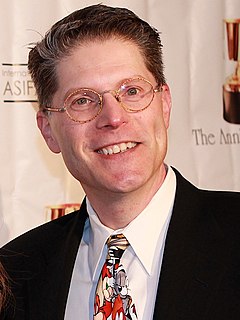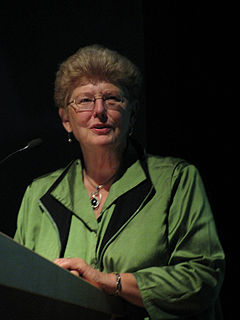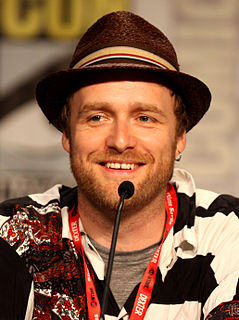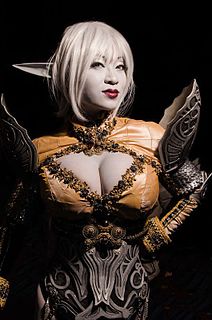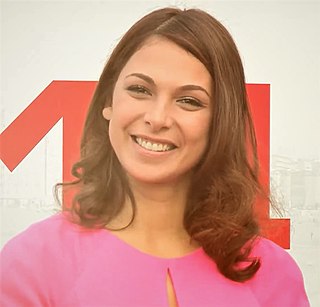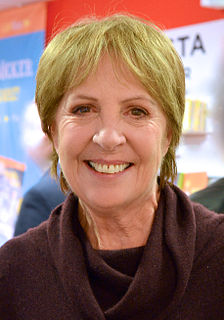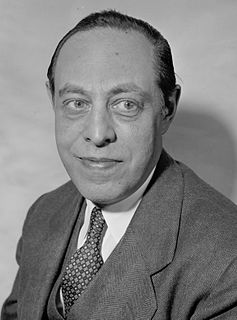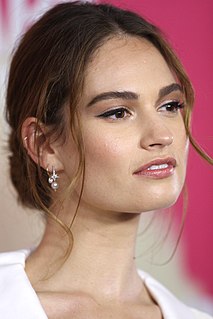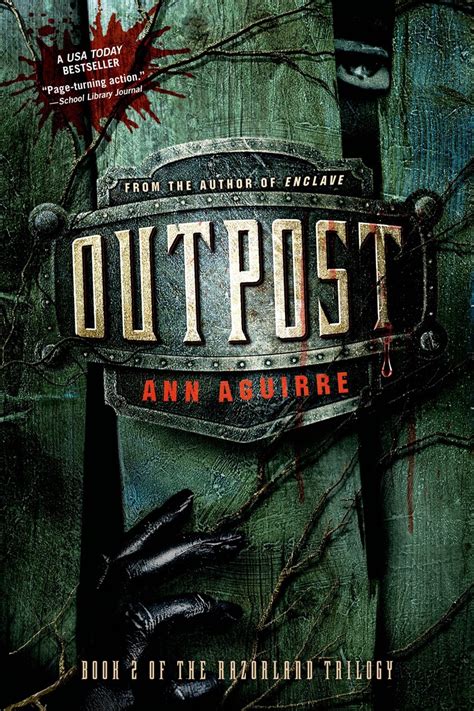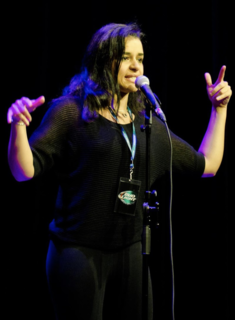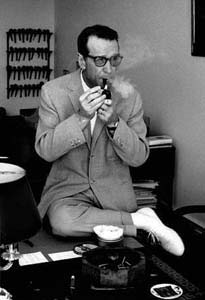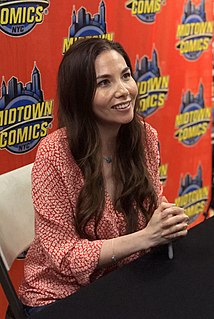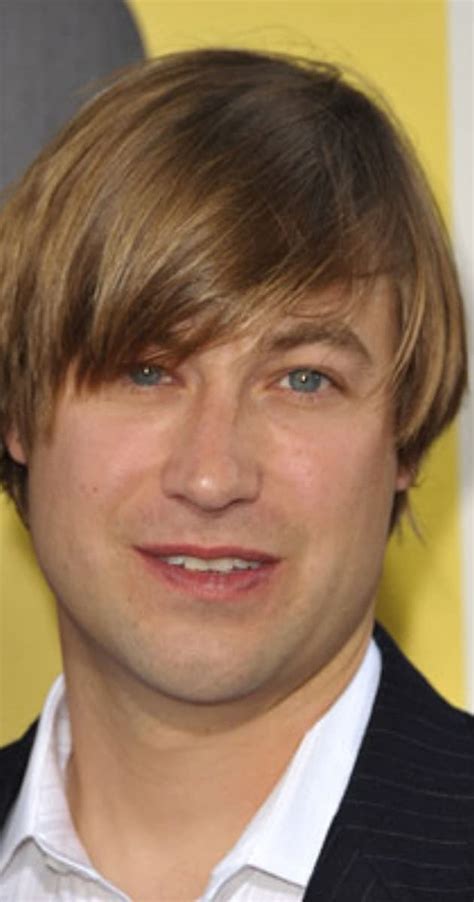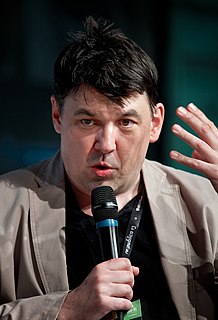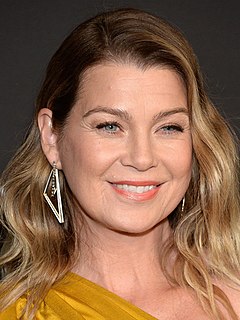Top 1200 Literary Characters Quotes & Sayings - Page 3
Explore popular Literary Characters quotes.
Last updated on September 30, 2024.
But I'm not a small-literary-novel kind of guy, and once I'd developed the world in the first couple of hundred pages, I felt that there was potential here to go on and write an engaging story set in that world. So that's what I did. This probably ruins things both for the people who want small literary novels and for those who want action-packed epics, but anyway, it's what I wrote.
Only idiots or snobs ever really thought less of 'genre books' of course. There are stupid books and there are smart books. There are well-written books and badly written books. There are fun books and boring books. All of these distinctions are vastly more important than the distinction between the literary and the non-literary.
A word is used "correctly" when the average hearer will be affected by it in the way intended. This is a psychological, not a literary, definition of "correctness". The literary definition would substitute, for the average hearer, a person of high education living a long time ago; the purpose of this definition is to make it difficult to speak or write correctly.
What was needed was a literary theory which, while preserving the formalist bent of New Criticism, its dogged attention to literature as aesthetic object rather than social practice, would make something a good deal more systematic and 'scientific' out of all this. The answer arrived in 1957, in the shape of the Canadian Northrop Fryes mighty 'totalization' of all literary genres, Anatomy of Criticism .
To me, feminism in literature deals with the female characters being in some way central to the thematic concerns of the book, or that they are agents of change to some degree. In other words, the lens is focused deeply and intensely on the female characters and doesn't waver, which allows for a glimpse into the rich inner lives of the characters.
I don't know that I had a sense that there was such a thing as "the poetry world" in the 1960s and early 70s. Maybe poets did, but for me as an onlooker and reader of poetry, poetry felt like it was part of a larger literary world. I mean, even the phrase "the poetry world" reflects a sort of balkanization of American literary and artistic life that has to some extent happened since then.
Lulled into somnolence by five hundred years of print, literary studies have been slow to wake up to the importance of MSA (media-specific analysis). Literary criticism and theory are shot through with unrecognized assumptions specific to print. Only now, as the new medium of electronic textuality vibrantly asserts its presence, are these assumptions clearly coming into view.
I think it's more fun to grow to love characters who are flawed than it is to present perfect characters. Perfect characters aren't very funny. Certainly my friends are a strange, intense bunch of people, and people's families drive them crazy, but challenging relationships are always more rewarding.
The ratio of authentic literature to trash in pornography may be somewhat lower than the ratio of novels of genuine literary meritto the entire volume of sub-literary fiction produced for mass taste. But it is probably not lower than, for instance, that of another somewhat shady sub-genre with a few first-rate books to its credit, science fiction.
I like complex characters. I've been very, very lucky to portray, in these past three years, characters that are strong and fragile at the same time. It's those characters that I'm looking for. In the last year and half I played three different religions, and that allowed me to educate myself so much.
The thought of the novelist lies not in the remarks of his characters or even in their introspection but in the plight he has invented for his characters - in the juxtaposition of those characters and in the lifelike ramifications of the ensemble they make: their density, their substantiality, their lived existence actualized in all its nuanced particulars, is in fact his thought metabolized.
To vest a few fallible men — prosecutors, judges, jurors — with vast powers of literary or artistic censorship, to convert them into what J. S. Mill called a "moral police," is to make them despotic arbiters of literary products. If one day they ban mediocre books as obscene, another day they may do likewise to a work of genius.
I think I'm up for not trying to play a literary heroine. I think I'd rather just do someone that has just been created in a script, rather than in a book that everyone knows and loves. The difficulty with it and the reason these characters are so loved is that every woman and man that reads it understands it in a different way. They're so relatable, but different aspects will be drawn from different people.
I can't help but think that it's an unfortunate custom to name children after people who come to sticky ends. Even if they are fictional characters, it doesn't bode well for the poor things. There are too many Judes and Tesses and Clarissas and Cordelias around. If we must name our children after literary figures then we should search out happy ones, although it's true they are much harder to find.
I don't have a preference for bad people, no. I have an interest in playing a broad range of characters. Obviously, I'm mostly identified with a character who is very responsible, very solid and very intelligent, but there are plenty of questionable characters in my past career. I'm interested in exploring theatricality and characters with some dimension.
The American horror movies are more moralistic, they have not only good characters, but characters where the ultimate danger is death. What I like about European cinema is they have another sense of what's good, what's bad, and sometimes all the characters are far more complex than just that. It's less binary, the Giallo genre.
That literary-popular distinction is, in my view, vastly overstated. At the far poles there are clearly books that are purely commercial and purely literary, written for audiences that want to see the same thing enacted over and over and over again. But the middle is where most people read and most people write.
My advice for finding a literary agent would be first, put your work out there as much as possible and hopefully someone will find you, because I still have literary agents writing to me after they find my site. You want someone who understands your work and is going to be your cheerleader from day one.
I would like to carve my novel in a piece of wood. My characters—I would like to have them heavier, more three-dimensional ... My characters have a profession, have characteristics; you know their age, their family situation, and everything. But I try to make each one of those characters heavy, like a statue, and to be the brother of everybody in the world.
I feel my fuller-bodied characters are all in the independent films I do, and in the studio productions, I have to work harder to dimensionalize the characters. And that's certainly part of the job description of an actor - that's what you're supposed to do - but you have to work harder at it in the characters that I've encountered in studio films.
On a spectrum of literary productions, memoir is just another form. If the person doing the reviewing or critiquing was ill-educated about literary forms, they could write something dunderheaded about the author or their life (I've seen these and barfed at them), but anyone who is well-practiced and educated in literature - why would they leave that at the door when entering memoir?
In terms of my relationships with a lot of the adult characters, when I was working with Harrison, it wasn't like a verbal agreement, but we both understood that because there was this constant tension between our characters, we couldn't say "Cut" and start acting normal. We had to keep an essence of that relationship in our characters off screen which is really important.
I feel engaged with young people in Pakistan. But that said, it's still a small minority that reads novels, literary fiction. But it isn't necessarily a small minority of the wealthy elite in the city of Lahore. It can often be and I often do meet at literary festivals students who've ridden a bus 12 hours from a very small town just to hear some of their favorite writers come and speak.
When we consider the close connection between science and industrial development on the one hand, and between literary and aesthetic cultivation and an aristocratic social organization on the other, we get light on the opposition between technical scientific studies and refining literary studies. We have before us the need of overcoming this separation in education if society is to be truly democratic.
When writers are self-conscious about themselves as writers they often keep a great distance from their characters, sounding as if they were writing encyclopedia entries instead of stories. Their hesitancy about physical and psychological intimacy can be a barrier to vital fiction. Conversely, a narration that makes readers hear the characters' heavy breathing and smell their emotional anguish diminishes distance. Readers feel so close to the characters that, for those magical moments, they become those characters.
I think at some level, it's just alchemy that we, as writers, can't explain when we write the characters. I don't set out to create the characters - they're not, to me, collections of quirks that I can put together. I discover the characters, instead. I usually go through a standard set of interview questions with the character in the beginning and ask the vital stuff: What's important to you? What do you love? Hate? Fear? .. and then I know where to start. But the characters just grow on their own, at a certain point. And start surprising me.
I have always liked kind of outsider characters. In the movies I grew up liking, you had more complicated characters. I don't mean that in a way that makes us better or anything. I just seem to like characters who don't really fit into. You always hear that from the studio: "You have to be able to root for them, they have to be likeable, and the audience has to be able to see themselves in the characters." I feel that's not necessarily true. As long as the character has some type of goal or outlook on the world, or perspective, you can follow that story.
Every genuinely literary style, from the high authorial voice to Foster Wallace and his footnotes-within-footnotes, requires the reader to see the world from somewhere in particular, or from many places. So every novelist's literary style is nothing less than an ethical strategy - it's always an attempt to get the reader to care about people who are not the same as he or she is.
In my profession more generally, it's not an exaggeration to say that masculinity is viewed as the root of all evil. If you were to take a literary theory course, you might think it would be about literature, but it's really not. It's about all the various forms of oppression on earth and how we can see them playing out in literary works. And behind all these forms of oppression is a guy.
Edmund Wilson was our greatest American literary critic because he was more than a literary critic: He was a fearless, even radical judge of the society he lived in. (See, for example, _A Piece of My Mind_; _The Cold War and the Income Tax_; the introduction to _Patriotic Gore_.) Our conventional critics cannot forgive him for those scandalous lapses in good taste.




